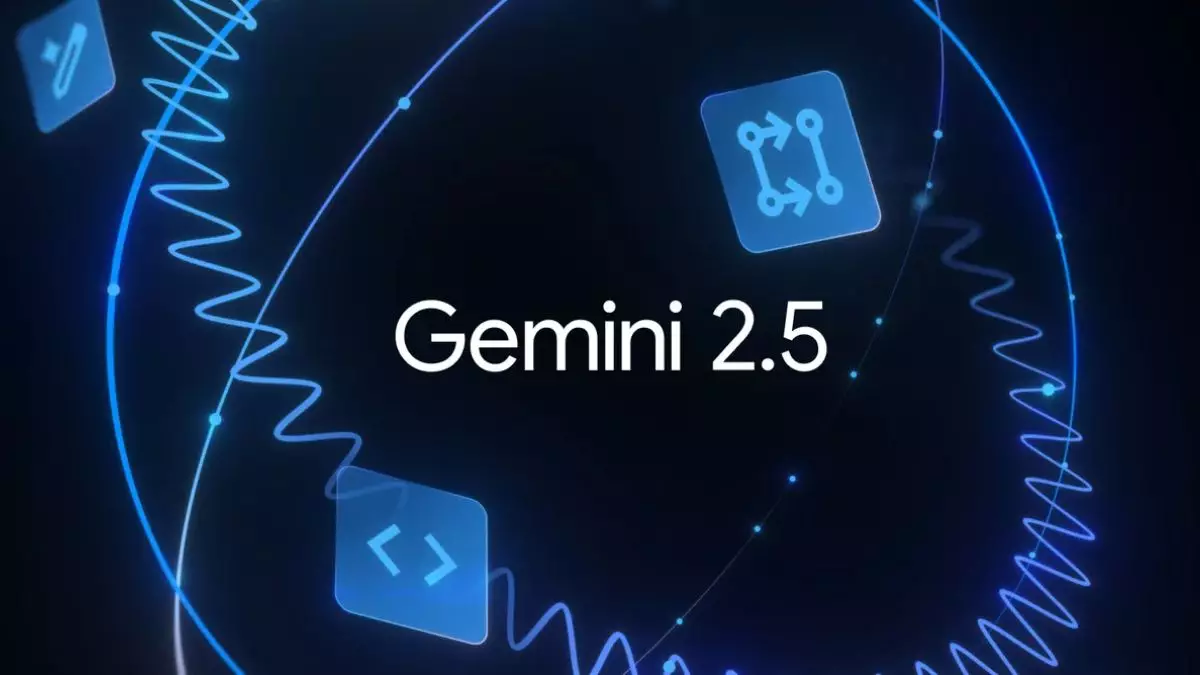On Tuesday, Google unveiled the stable versions of its Gemini 2.5 family of artificial intelligence models, an event that has stirred excitement and skepticism in equal measure. The Mountain View behemoth has positioned these advancements as groundbreaking tools, claiming that they will revolutionize how users interact with AI. Yet, as we examine the implications of this new release, it becomes evident that this moment is part of a larger narrative about artificial intelligence—one that highlights both the promise and the peril of rapid technological advancement.
The key player here is the Gemini 2.5 Pro model, which has now been made accessible to both paid users and those on the free tier. This seemingly democratizing move pitches itself as a step toward inclusivity. However, when you delve deeper, the limitations are glaring. Free tier users face daily caps on prompts, indicating that while the technology might be available to everyone, its true potential remains ensconced behind a paywall. This raises questions: Is Google genuinely committed to equitable access, or is this merely a strategy to monetize user engagement?
Understanding Performance: Is ‘Fastest’ Enough?
Central to Google’s announcement is the new 2.5 Flash-Lite model. Marketed as the “fastest and most cost-efficient” AI, it targets users who require instantaneous responses for real-time tasks like translation and classification. The promotional language surrounding this model presents a vision where speed trumps substance—an alarming proposition that begs the question: Can we trust a model that prioritizes performance while glossing over the importance of accuracy and depth?
Critics of the tech industry often underline the perils of buzzwords that prioritize quick fixes over sustainable growth. There’s a pervasive fear that technological innovations are often marketed with gaudy claims, distracting from the genuine concerns regarding reliability and ethical usage. While Flash-Lite may indeed best its predecessor in some aspects, its efficacy in nuanced tasks—those that require reasoning and contextual understanding—remains to be seen.
Access Over Abstraction: The Paywall Dilemma
The rollout of the Gemini 2.5 models is not merely a technical update; it serves as a microcosm of a broader discussion about the technology landscape and its accessibility. By allowing free tier users to access the Gemini 2.5 Pro but with limitations, Google creates a dynamic that echoes many concerns surrounding the digital divide. Are we witnessing the birth of a two-tier system where cutting-edge technology is split between those who can afford it and those who must make do with stripped-down versions?
This approach raises uncomfortable questions about equity and innovation. While companies like Google tout their commitment to make AI tools broadly accessible, they simultaneously create barriers that may stifle the very creativity and problem-solving capabilities the technology is designed to enhance. By controlling the flow of information and access, tech giants risk perpetuating inequalities in knowledge and opportunity.
Stability Amid Glitches: A Double-Edged Sword
The transition from a preview to a stable version might seem like a cause for celebration, especially for users who have faced glitches and errors during the testing phases. However, one must ask: what does “stability” mean in the context of AI? The term appears to suggest an improvement but is often void of the practical implications of real-world application.
Technology enthusiasts eagerly hope that these advancements will lead to greater accuracy and contextual relevance. Nevertheless, trusting that an AI model, which is inherently susceptible to biases and errors, has finally achieved a level of stability is a faith that may be misplaced. The readiness of these models for real-world applications is still uncertain, leaving stakeholders to ponder whether we are merely witnessing a shift from one set of issues to another.
In essence, the unveiling of Gemini 2.5 runs the risk of becoming emblematic of the broader AI narrative: one that oscillates between innovation and overhyped expectations, accessibility and elitism, reliability and unchecked advancements. Google may very well be poised to shape the future of AI, but it ought to be mindful of the complexities and responsibilities it carries along this journey.


Leave a Reply